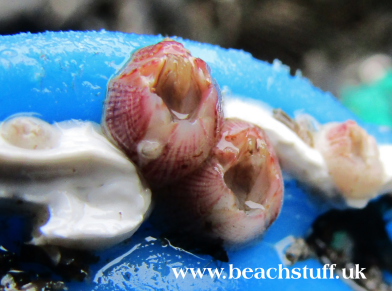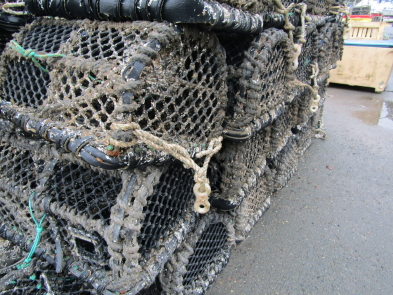

Pretty in Pink

This is an acorn barnacle (for more on acorn barnacles, please visit this page) with a difference.
However, unlike the acorn barnacles we find in our UK rockpools, this non-native pink barnacle generally prefers warmer waters.So warm, in fact, that is thought to be native to the west coast of Africa. There are records suggesting it has spread north to the west coasts of Portugal, Spain and France and the north coast of France. In the UK, there are some records of it on the coasts of South Devon, Dorset and West Cornwall although there are very few records overall.
;

The Pink Barnacle grows to about 12mm and is typified by a pinkish (sometimes purplish) hue on its six body plates.
I have found very few of them even though I have been looking for some time. The one pictured on the top of this page was found on part of a car door that washed up on Woolacombe Beach, North Devon. Theoretically, that one could have come from anywhere - I am not sure how far car doors travel by sea!
What's in a name?
The barnacle's scientific name is Hesperibalanus fallax meaning deceptive western barnacle. I haven't yet found a more user-friendly English name. However, in French it is known as balane feinte which means Fake Barnacle. So it looks like we are all agreed it is fake. Even though it is a genuine barnacle.

The other pink barnacles on this page were found on lobster pots in Ilfracombe Harbour. These pots are generally placed close to the North Devon coast, the farthest out being on the edge of the no-take zone around Lundy Island. Does this suggest that our Pink Barnacle is now growing in numbers in North Devon? Are our seas getting warmer? Or is the tolerance of pink barnacles growing?
If you spot a pink barnacle, please take a photo and let us know! Email hello@beachstuff.uk or contact us on our facebook page.
Thank you!


























